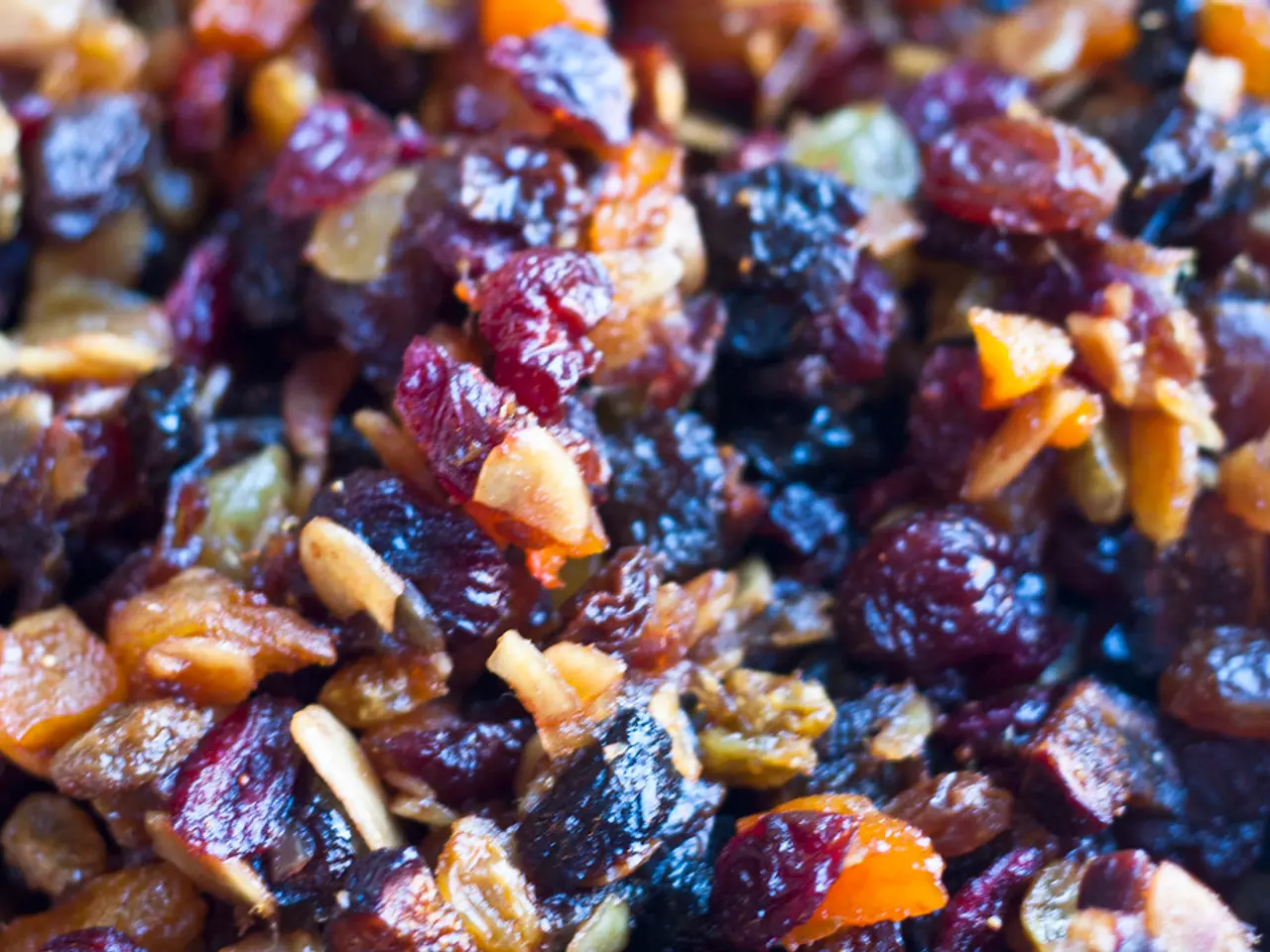Research indicates a potential optimal diet for promoting healthy aging over a 30-year span
The Alternative Healthy Eating Index (AHEI) is a dietary approach that promotes gradual changes towards a healthier lifestyle, without requiring drastic shifts. This approach encourages weekly improvements, such as replacing one processed snack daily with nuts or fresh fruit, choosing whole grain versions of bread, pasta, or rice, and adding one extra serving of vegetables to your largest meal.
A study tracking participants over three decades found that only 9,771 met the criteria for healthy aging, less than 10%. However, the participants who are now thriving in their 70s and 80s began to make better food choices in their 40s and 50s, providing concrete evidence that dietary choices made today directly impact how we'll feel and function decades from now.
Participants who followed the AHEI most closely maintained independence, cognitive sharpness, and physical vitality well into their 70s and beyond. The study found that consistent, moderate improvements to eating habits over decades, such as choosing whole grain bread over white, snacking on nuts instead of chips, and drinking water instead of soda, can lead to significant health advantages.
Many foods emphasized in the AHEI have powerful anti-inflammatory properties, such as berries, leafy greens, fatty fish, nuts, and olive oil, which actively combat inflammation at the cellular level. The principles of the AHEI can be applied to various cultural food preferences, including Asian, Latin American, African, or European cuisines, by choosing whole, minimally processed versions of traditional foods.
The AHEI adapts to individual preferences and circumstances, allowing vegetarians to emphasize plant proteins and those who enjoy fish to include it regularly, while maintaining the overall pattern of more whole foods, less processed junk. The study found that people who regularly consumed nuts and legumes had significantly better cognitive function at age 70 compared to those who rarely ate them.
The AHEI provides the optimal fuel mix for cognitive longevity, as shown by the strong correlation between AHEI adherence and cognitive function at age 70. The study tracking over 105,000 people for 30 years found that the AHEI increases the chances of reaching 70 in excellent health by 86%. Even modest improvements in eating habits according to the AHEI can significantly boost chances of healthy aging.
In comparison, the Mediterranean diet (often assessed by scores like the aMED) focuses on adherence to nine components, including vegetables, fruits, whole grains, nuts, legumes, fish, red meats (less consumption), alcohol (moderate intake), and fat quality (favoring monounsaturated over saturated fats). However, the AHEI outperformed the Mediterranean diet across multiple health metrics in the study.
The AHEI prioritizes fruits, vegetables, whole grains, nuts, legumes, and healthy fats while minimizing red meat, processed foods, sugary drinks, and excess salt. The foundation foods of the AHEI, such as beans, lentils, whole grains, and seasonal vegetables, are among the most economical options in most grocery stores, challenging the assumption that healthy eating is expensive.
In summary, while both diets share focus on plant-rich foods, healthy fats, and limiting processed and red meats, the AHEI places more structured limits on sodium, sugar, refined grains, and specifically prioritizes serving targets for vegetables, fruits, and whole grains, making it a strong dietary pattern for promoting healthy aging. It's never too late to start following the AHEI, but the earlier you begin, the more dramatic the benefits, with every meal being an opportunity to invest in your future vitality, independence, and quality of life.
- Dietary choices made in the 40s and 50s have a profound impact on healthy aging, as evident from a study that found only 9,771 out of over 105,000 participants met the criteria for healthy aging at an age of 70 and above.
- The AHEI, a dietary approach that promotes gradual changes, has been found to increase the chances of reaching 70 in excellent health by 86%.
- The study tracking over 105,000 people for three decades found that people who regularly consumed nuts and legumes had significantly better cognitive function at age 70 compared to those who rarely ate them.
- The AHEI outperformed the Mediterranean diet across multiple health metrics in the study, prioritizing fruits, vegetables, whole grains, nuts, legumes, and healthy fats, while minimizing red meat, processed foods, sugary drinks, and excess salt.
- In the workplace-wellness and health-and-wellness context, adhering to the AHEI can lead to significant health advantages, promoting skin-care, men's-health, and women's-health through various therapies-and-treatments and a healthy-diet, thus supporting aging gracefully.




